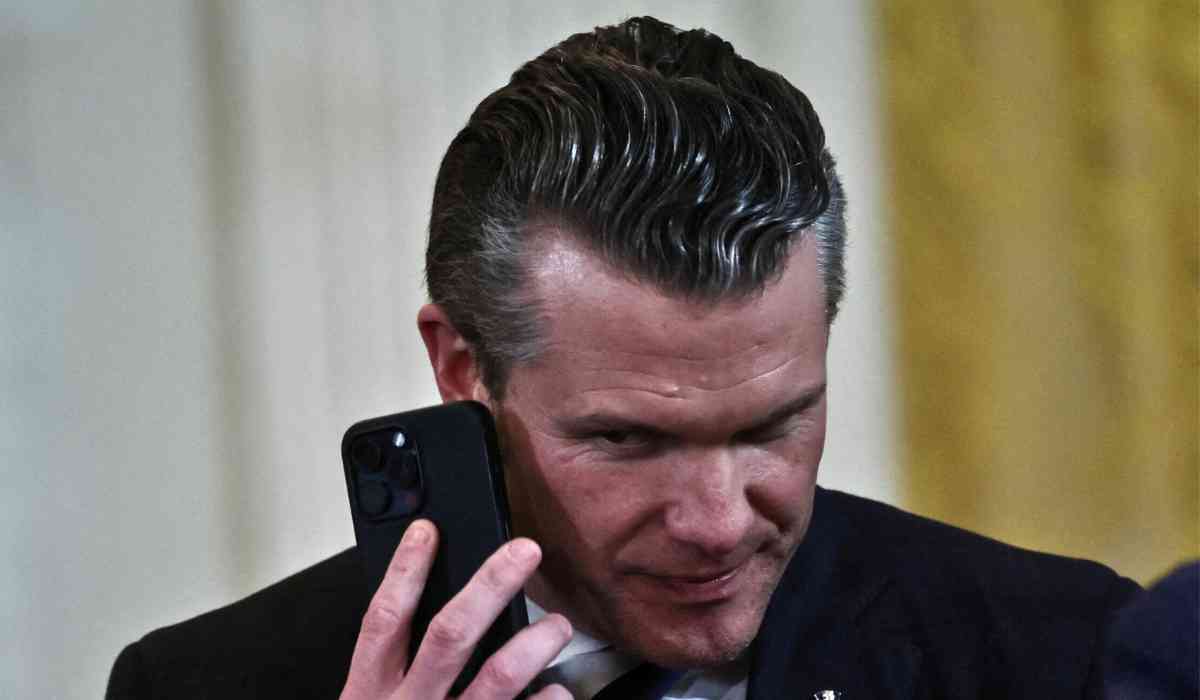In a recent revelation that has stirred discussions about the handling of sensitive military information, U.S. Defense Secretary Pete Hegseth shared detailed plans about a military airstrike in Yemen in a private Signal group chat. This chat included his wife, brother, and personal lawyer, raising questions about the use of unclassified communication platforms for sharing sensitive defense information.

What Happened?
In mid-March, Hegseth disclosed information about an upcoming airstrike against the Iran-aligned Houthi militants in Yemen. The details shared included flight schedules of F/A-18 Hornet aircraft and the timing of the strikes. This information was sent through a private Signal chat group called "Defense | Team Huddle," which had about 13 participants, including family members and close associates.
This was not the first time Hegseth shared such information on Signal. Earlier, he had shared similar military plans in another Signal chat involving senior administration officials, which mistakenly included Jeffrey Goldberg, the editor-in-chief of The Atlantic. Goldberg publicly revealed the contents of that chat, which detailed the military operation just hours before it occurred, causing a media stir.
Who Was in the Chat?
The second Signal chat included Hegseth’s wife Jennifer, a former Fox News producer; his brother Phil, who works as a liaison for the Department of Homeland Security at the Pentagon; and his personal lawyer Tim Parlatore. The group also had other individuals connected to Hegseth’s professional and personal circle, but it did not include other Cabinet-level officials.

Concerns and Reactions
The use of Signal, a commercially available encrypted messaging app not approved for classified information, has raised concerns about operational security. Sharing sensitive military details on such platforms could potentially expose critical information to unauthorized parties, posing risks to national security.
However, Pentagon spokesperson Sean Parnell denied that any classified information was shared, stating,
"There was no classified information in any Signal chat." The White House also downplayed the significance of the second chat, emphasizing that no classified information was involved.
Despite these assurances, the Pentagon’s acting inspector general has launched an investigation into Hegseth’s use of Signal for communicating military plans, reflecting the seriousness with which the matter is being treated.

Balancing Transparency and Security
The incident highlights the challenges faced by government officials in balancing transparency, communication efficiency, and national security. While Signal offers encrypted messaging that many consider secure for everyday use, it is not designed or authorized for transmitting highly sensitive or classified military information.
Sharing operational details with family members and personal associates, even if not classified, could still risk leaks or misunderstandings. This situation also underscores the importance of strict protocols and secure communication channels within the defense community to prevent accidental disclosures.
At the same time, the incident has sparked debate about how military and national security information is handled in the digital age. The ease of communication through apps like Signal can improve coordination but also increase the risk of unintended exposure.
Conclusion
Defense Secretary Pete Hegseth’s sharing of Yemen war plans in a private Signal chat with family and a lawyer has brought to light significant concerns about information security practices at the highest levels of the U.S. government. While officials maintain that no classified information was shared, the use of an unclassified messaging platform for sensitive military details is under scrutiny, prompting an official investigation.
With inputs from agencies
Image Source: Multiple agencies
© Copyright 2025. All Rights Reserved Powered by Vygr Media.

























